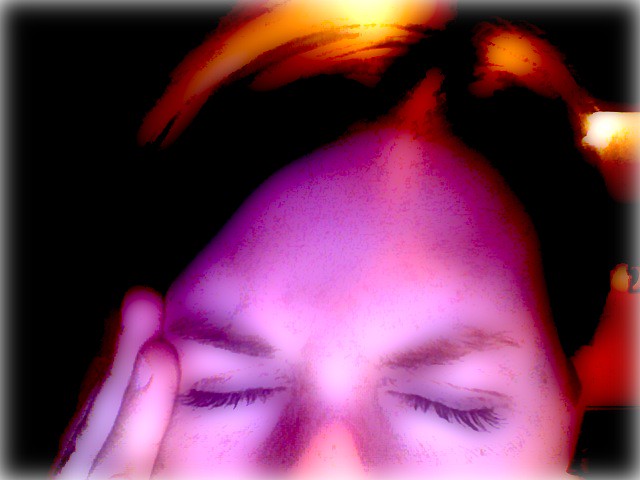Dr Graham Lennox, consultant neurologist with private healthcare provider Shalbourne, in Swindon, says National Migraine Awareness week, which runs until 7 September, is a good opportunity to help patients learn how to help manage their migraine attacks.
Migraine attacks can be debilitating, and it can be difficult to predict when one will happen, so it’s not surprising that migraine sufferers can feel out of control. The common symptoms, including sensitivity to light, nausea, vomiting and lethargy, as well as the classic throbbing headache, are deeply unpleasant, often leaving sufferers unable to do anything until they have passed.
So, how on earth can you manage migraine attacks?
Firstly, you should get a proper diagnosis from your GP. If you suspect you are having migraine attacks, start keeping a log of them, with as much information as you can, so that your doctor can rule out any other causes.
For example, do you experience any symptoms in the lead-up to the attack, such as food cravings, tiredness, a stiff neck or feeling thirsty? Do you notice changes in your vision, such as dark or coloured spots or stars? Do you feel dizzy or weak or faint? If you do have a headache (and not all patients do) try to describe it. Is it a throbbing pain? Is it in particular area of your head, or all over? Do you have a sensation of tightening? Do you feel nauseous or vomit when you’re having an attack? How long do the symptoms last, and do you take any medication during an attack? And do you have any other symptoms as the attack subsides?
Dr Graham Lennox says that obtaining a diagnosis is important.
“The great majority of people with disabling headaches have migraine, but there are some other headache disorders, such as medication overuse headache (where headaches are triggered by regular use of painkillers) and cluster headache, that require a different approach,” says Dr Lennox,
Once your GP has made a firm diagnosis, you may be prescribed a preventative medicine. But the first step in learning to cope in the longer term is to keep a personal migraine diary.
A diary or record can help you recognise triggers that may lead to attacks, such as stress, hormonal changes, skipping meals, erratic sleep, bright lights, particular foods or even weather conditions. The six to eight hours leading up to an attack are particularly important to record. The Migraine Trust has several useful templates to help you – you can find them at www.migrainetrust.org .
While each patient’s migraine is different, there is some evidence that certain lifestyle changes can reduce the frequency and/or severity of migraine attacks in some people. Researchers have found that moderate exercise can be beneficial – and, of course, will improve your overall health and reduce the risk of developing other conditions such as high blood pressure and Type 2 diabetes.
Dr Lennox says: “Exercise stimulates your body to produce natural chemicals that control pain and act as anti-depressants, so you may find you can reduce your medication. If you’ve found that strenuous exercise can trigger an attack, warm up more gradually or swap it for more gentle activities such as brisk walking or cycling.
“Make sure that you take plenty of fluids and a starchy snack before exercising. A sudden change in your blood pressure, dehydration or low blood sugar can all be triggers for a migraine attack.
“Try to exercise for at least 30 minutes, three times a week, and you could expect to see beneficial effects after six to eight weeks.”
Stress can be another trigger for migraines. Exercise helps reduce stress, and so does practising mindfulness. It’s very easy for us to get caught up in our thoughts without noticing that those thoughts are affecting how we feel or behave. Practising mindfulness helps us reconnect with our bodies and the sensations they experience, so we recognise unhelpful thoughts, see their patters and realise they are simply mental events that we don’t have to allow to take control over how we feel and act. For more information on mindfulness, go to www.nhs.uk/conditions/stress-anxiety-depression/mindfulness/.
Dr Lennox advocates that migraine sufferers make a bit more time for themselves, too.
“Stress, anxiety and lack of sleep can make migraines worse, so it makes sense to reduce those factors where you can,” he says.
“If you’re cramming lots of chores into your day, give yourself permission to drop some of them, or delegate to someone else. If you’re feeling overwhelmed by something you have to do, it actually helps to take a break for a while and come back to it afresh.
“And at the end of the day, do something that helps you relax and unwind, rather than something stimulating, and keep devices such as laptops and mobiles out of the bedroom. Listening to gentle music, taking a long bath or a reading an undemanding book could be the key to keeping your migraines to a minimum.”









Your Comments
Be the first to comment on this article
Login or Register to post a comment on this article